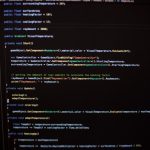In order to complete homework, attend virtual classes, or simply communicate with their teachers and peers, students today must spend a significant amount of time online. The internet is necessary for many school assignments, but it also has risks. Teens are vulnerable to a variety of online threats, including malware, phishing scams, and identity theft. Understanding how to protect your computer online is crucial. They can help you study more quickly and stress-free while also protecting your private and academic information. Students benefit greatly from having a thorough understanding of internet safety.

Protecting Personal and Academic Information
Students store a variety of information on their devices and in their online accounts, including grades, assignments, and personal data. If this information ends up in the wrong hands, it could have a very negative impact on a student’s academic progress. What if someone gained access to your college account and saw all of your assignments, homework, and personal data?
Understanding the fundamentals of internet security, such as creating strong, one-of-a-kind passwords for every website and enabling multi-factor authentication (MFA), can help students protect their accounts from hackers. Password managers, for example, assist you in creating and remembering complex passwords, which facilitates account security. These easy steps make it simple to protect educational and personal information.
Academic security involves not only protecting logins and stored files but also ensuring the credibility of submitted tasks. When working on digital assignments, students need to secure both their files and the authenticity of their content and a plagiarism checker free no sign up can serve as an extra layer of protection by ensuring that submitted work remains original and aligned with academic standards. This approach prevents unnecessary risks to academic reputation while reinforcing the importance of safeguarding personal and educational information.
Protecting from scams and phishing
Astute individuals should be wary of phishing scams. These are phony emails or websites that attempt to obtain personal information from you, such as your password, username, or even credit card details. To make their messages appear authentic, criminals who send phony emails frequently pose as instructors, university employees, or even student organizations. They might send you a file or link in an email instructing you to go to a phony website where they will steal your personal data.
For instance, you might receive an email that appears to be from your school’s IT department. It would notify you that there is a risk to your account and request that you click on a link to resolve the issue. If you’re not careful, hackers could obtain your login credentials. However, you can identify phishing attempts and avoid falling for them if you know what to look for, such as emails with odd addresses, words, or links that don’t seem right.
Securing Communication with Teachers and Peers
These days, the majority of academic communication occurs online, such as when you email your professor, share files with your peers, or discuss assignments. Since a large portion of this contact is academic or personal, it is crucial to keep it secure.
You might need to share private research for a group project or discuss a delicate grade issue with your professor. If someone else reads those messages, there might be issues. By using email or texting services with robust security features, students can ensure that their conversations remain private. Additionally, since hackers can access unprotected networks, it is best to avoid discussing school-related topics on public Wi-Fi.
Protecting devices and data

When it comes to learning, students’ devices are essentially their lifelines. To complete assignments, take notes, access study resources, and perform other tasks, people use laptops, tablets, and smartphones. A student may not be able to advance academically if these devices are compromised, whether through software, ransomware, or theft.
Students should update their operating systems, install firewalls, and use security software to protect themselves from threats. Regularly backing up important files, either on a hard drive or in the cloud, is also a smart idea. Therefore, you won’t lose all of your notes, work, or studies if you misplace or break a device.
Even if someone manages to get onto your device, they won’t be able to access your files without the correct password if you have secured your private documents. These simple actions have a significant impact on the security of your data.
Secure Methods for Research and Internet Resource Use
Since the internet is a fantastic study tool, students use it to access academic journals, articles, and books. However, not everything you find online can be trusted. Some websites may even contain malware or bugs that could damage your devices.
Finding trustworthy sources and using scholarly resources like Google Scholar and JSTOR are critical skills. Additionally, you should exercise caution when stealing content from the internet. Some websites provide free e-books or PDFs, but they may also contain bugs that could damage your device. If students learn to identify secure websites (look for HTTPS in the URL) and avoid files that appear dubious, they can stay safe while studying.
Promoting Digital Responsibility
Maintaining the security of your personal data online is not enough; you also need to exercise responsibility in the digital realm. Students should be conscious of their “digital footprint.” When they go online, they leave behind this information. Even if you later remove anything you share or post on a public website, it may still be visible to others.
Giving away too much personal information, such as your university login credentials or intimate details about your academic life, for example, can expose you to identity theft and even stalking. By adopting safe online practices, such as limiting the public access to personal information or posting only relevant content, students can take control of their digital identities. Additionally, they can ensure that their social media profiles present a positive, professional image in the event that they ever wish to apply for a job.
Accessing online learning platforms safely
Because online learning and classes are so popular, students use platforms like Zoom, Google Classroom, and Canvas virtually daily. Many leverage these tools alongside an AI note taker to capture lecture highlights and stay organized without manually taking notes.
Because these platforms store academic records, test scores, and personal information, hackers are interested in them.
To protect their learning accounts on these websites, students should set up multifactor authentication (MFA) and create strong passwords. Additional safety features, such as notifications if someone attempts to join in a way that doesn’t seem normal, are included in many online learning platforms. Students can use this to determine whether someone is attempting to hack their account. By making sure their accounts are adequately secured, students can safeguard their privacy and prevent others from viewing their work.
Maintaining concentration and avoiding time waste
Whether you’re on a fun website or social media, it’s easy to lose focus when you’re online. While taking breaks is beneficial, it’s also simple to become distracted for hours on end, which can impair productivity and academic performance.
In addition, some activities may not be as safe as they appear. If you’re not careful, you might click on a link or advertisement that downloads malware or directs you to a scam website. By blocking websites and utilizing other study aids, students can stay focused on their studies and prevent these distractions. By keeping their online space safe, they can avoid risky websites and continue working on their assignments.
Internet Safety as a Key to Successful Studies
In today’s digital world, being safe online is not only a technical ability but also a vital life skill for students. By learning how to protect their devices and contacts, identify potential scams, keep their personal and educational information safe, and make wise decisions when conducting research and communicating with people online, students can ensure that their studies go smoothly. Although there are actual risks, staying safe online has many advantages. If students know what to do and how to do it, they can have a safe, effective, and interruption-free online learning experience.
In an increasingly digital world, understanding internet safety is not only beneficial but also essential.
 logo
logo


